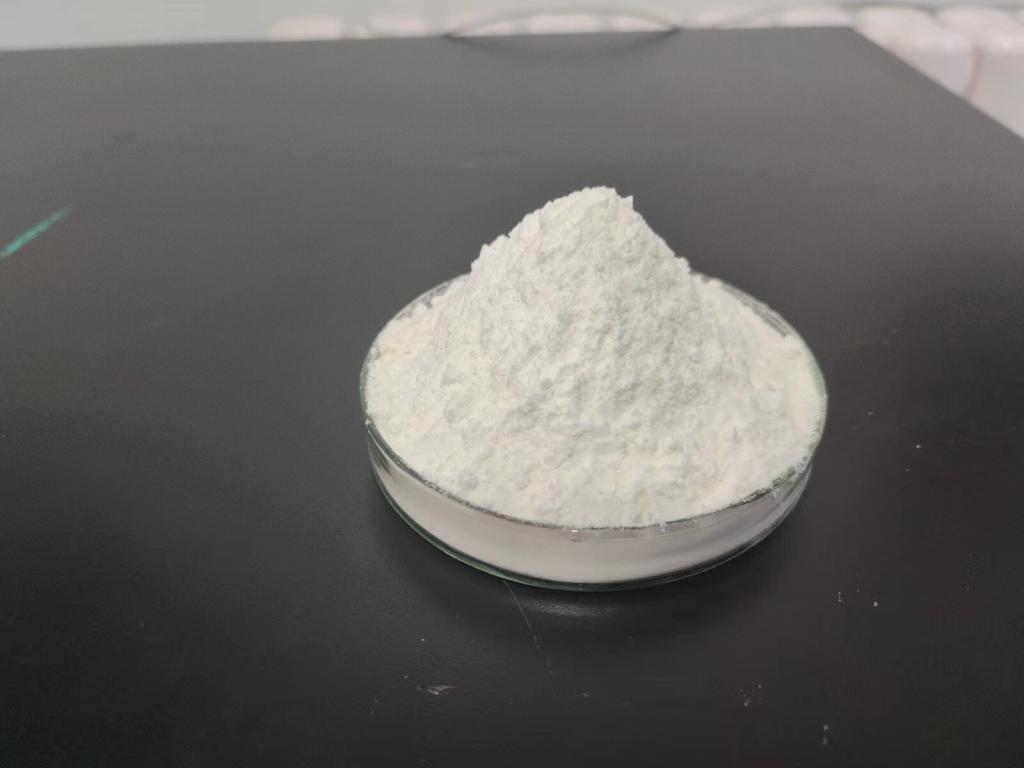Tel:0086 18231198596

News
Precision Approaches to Microbial Control: ε-Polylysine Hydrochloride in Industrial Settings
TIME:2024-02-20
Challenges of Microbial Contamination in Industrial Settings:
Product Quality and Safety: Microbial contamination poses a significant threat to the quality and safety of industrial products, ranging from pharmaceuticals and cosmetics to food and beverages.
Compliance with Regulations: Stringent regulatory standards mandate industries to adhere to microbial control measures to meet quality and safety requirements. Failure to comply can result in severe consequences, including product recalls and legal implications.
Spoilage and Shelf Life: Microbial contamination can lead to the spoilage of products and a reduction in shelf life, impacting economic sustainability and consumer trust.
Cross-Contamination Risks: Industries dealing with multiple products on shared equipment face the risk of cross-contamination, necessitating precise control measures to prevent the transfer of microbes between batches.
Understanding ε-Polylysine Hydrochloride:
ε-Polylysine hydrochloride is a naturally occurring cationic polymer produced through the fermentation of Streptomyces albulus or related strains. It is composed of ε-lysine units linked by amide bonds, imparting it with unique antimicrobial properties. Recognized for its safety and efficacy, ε-Polylysine hydrochloride has found applications in various industrial sectors as a potent tool for microbial control.
Unique Properties of ε-Polylysine Hydrochloride:
Broad-Spectrum Antimicrobial Activity: ε-Polylysine hydrochloride exhibits broad-spectrum antimicrobial activity against bacteria, yeasts, and molds, making it effective against a wide range of microorganisms.
Natural Origin: Derived from microbial fermentation, ε-Polylysine hydrochloride aligns with the growing demand for natural and sustainable antimicrobial solutions, reducing reliance on synthetic chemicals.
Stability and Solubility: The compound demonstrates stability under various environmental conditions, including a range of pH levels and temperatures. Its water solubility facilitates easy incorporation into different formulations.
Low Toxicity: With low toxicity compared to traditional chemical antimicrobials, ε-Polylysine hydrochloride offers a safer alternative, minimizing potential risks to both products and operators.
Precision Applications of ε-Polylysine Hydrochloride in Industries:
Pharmaceutical Manufacturing:
Aseptic Processing: ε-Polylysine hydrochloride is employed in aseptic processing environments to prevent microbial contamination during the manufacturing of pharmaceuticals, ensuring the sterility of critical components.
Preservation of Excipients: The compound is utilized to preserve excipients and inactive ingredients, contributing to the overall stability and efficacy of pharmaceutical formulations.
Cosmetic and Personal Care Products:
Preservative in Formulations: ε-Polylysine hydrochloride serves as a natural preservative in cosmetics and personal care products, inhibiting the growth of spoilage microorganisms and extending product shelf life.
Stabilization of Emulsions: Its stability-enhancing properties contribute to the stabilization of emulsions in cosmetic formulations, preventing microbial degradation.
Food and Beverage Processing:
Surface Sanitation: In food processing facilities, ε-Polylysine hydrochloride is utilized for surface sanitation, reducing the risk of microbial contamination on equipment and food contact surfaces.
Preservation of Beverages: The compound is incorporated into beverage formulations to control microbial growth, ensuring the quality and safety of drinks throughout their shelf life.
Water Treatment:
Microbial Control in Cooling Towers: ε-Polylysine hydrochloride is applied in cooling tower water treatment to prevent the growth of bacteria and algae, maintaining the efficiency of industrial cooling systems.
Preservation of Process Water: In various industrial processes requiring high-quality water, ε-Polylysine hydrochloride serves as an effective preservative, preventing microbial proliferation.
Paints and Coatings:
Microbial Stability: ε-Polylysine hydrochloride contributes to the microbial stability of paints and coatings, preventing the development of mold and bacteria on surfaces where these products are applied.
Preservation of Raw Materials: When incorporated into paint formulations, the compound helps preserve raw materials, ensuring the integrity of the final product.
Case Studies: Precision Applications of ε-Polylysine Hydrochloride in Industries:
Pharmaceutical Industry:
Cleanroom Sterility: ε-Polylysine hydrochloride is introduced into cleanroom environments to maintain sterility during pharmaceutical manufacturing, preventing microbial contamination in critical areas.
Cosmetic Formulations:
Natural Preservative in Lotions: Cosmetic lotions incorporating ε-Polylysine hydrochloride as a natural preservative demonstrate extended shelf life and enhanced resistance to microbial spoilage.
Food Processing Plants:
Equipment Sanitation: Food processing plants implement ε-Polylysine hydrochloride for sanitation purposes, ensuring that equipment surfaces remain free from harmful microorganisms.
Water Treatment Facilities:
Biofilm Prevention: In water treatment facilities, ε-Polylysine hydrochloride aids in preventing the formation of biofilms in pipelines and tanks, reducing the risk of contamination.
Challenges and Considerations:
Compatibility with Formulations: Ensuring the compatibility of ε-Polylysine hydrochloride with different formulations and manufacturing processes is crucial for its effective application.
Regulatory Compliance: Industries must navigate regulatory frameworks to ensure that the use of ε-Polylysine hydrochloride aligns with established standards and guidelines.
Integration into Existing Processes: Integrating ε-Polylysine hydrochloride into existing industrial processes requires careful consideration to minimize disruptions and optimize its efficacy.
Future Perspectives:
Advanced Formulations: Ongoing research and development efforts are likely to yield advanced formulations of ε-Polylysine hydrochloride tailored for specific industrial applications, enhancing its precision and efficacy.
Cross-Industry Collaboration: Collaborations between researchers, manufacturers, and regulatory bodies can facilitate the development of standardized approaches for the use of ε-Polylysine hydrochloride across diverse industries.
Increased Awareness: As awareness of the compound's precision applications grows, industries may increasingly incorporate ε-Polylysine hydrochloride into their microbial control strategies, contributing to a more sustainable and eco-friendly approach.
Conclusion:
ε-Polylysine hydrochloride's role in precision microbial control in industrial settings marks a significant advancement in the pursuit of safer, sustainable, and effective antimicrobial solutions. As industries strive to meet stringent quality standards and regulatory requirements, this natural compound offers a versatile tool for controlling microbes with precision. Its broad-spectrum efficacy, natural origin, and low toxicity position ε-Polylysine hydrochloride as a key player in the evolving landscape of microbial control across pharmaceuticals, cosmetics, food and beverages, water treatment, and coatings. The journey ahead involves continued research, industry collaboration, and the seamless integration of ε-Polylysine hydrochloride into diverse industrial processes, paving the way for a future where precision approaches redefine microbial control strategies.

 CONTACT
CONTACT




